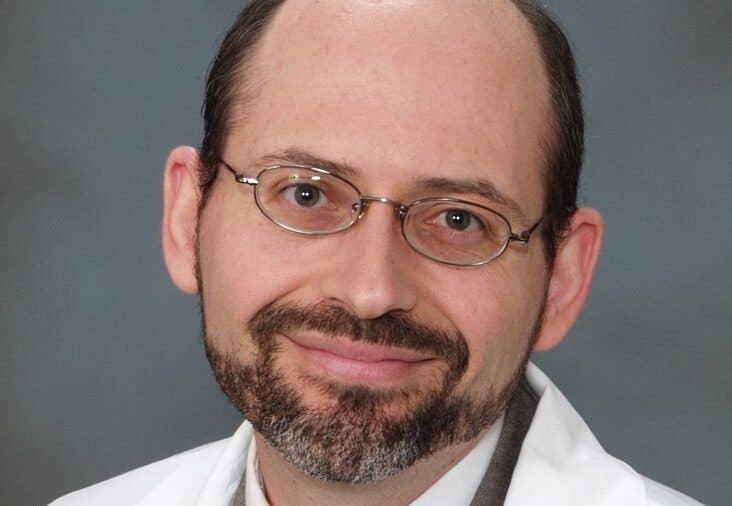The following is an excerpt from the New York Times bestseller How Not to Die, which was released by Flatiron Books.
Research showing that coronary heart disease can be reversed with a plant-based diet—with or without other healthy lifestyle changes—has been published for decades in some of the most prestigious medical journals in the world. Why hasn’t this news translated into public policy yet?
In 1977, the U.S. Senate Committee on Nutrition and Human Needs tried to do just that. Known as the McGovern Committee, they released Dietary Goals for the United States, a report advising Americans to cut down on animal-based foods and increase their consumption of plant- based foods. As a founding member of Harvard University’s nutrition department recalls, “The meat, milk and egg producers were very upset.”1 That’s an understatement. Under industry pressure, not only was the goal to “decrease meat consumption” removed from the report but the entire Senate nutrition committee was disbanded. Several prominent senators reputedly lost their election bids as a result of supporting the report.2
In more recent years, it was uncovered that many members of the U.S. Dietary Guidelines Advisory Committee had financial ties to everything from candy bar companies to entities like McDonald’s Council on Healthy Lifestyles and Coca-Cola’s Beverage Institute for Health and Wellness. One committee member even served as “brand girl” for cake-mix maker Duncan Hines and then as the official Crisco “brand girl” before going on to help write the official Dietary Guidelines for Americans.3
As one commentator noted in the Food and Drug Law Journal, historically, the Dietary Guidelines Advisory Committee reports contained:
"No discussion at all of the scientific research on the health consequences of eating meat. If the Committee actually discussed this research, it would be unable to justify its recommendation to eat meat, as the research would show that meat increases the risks of chronic diseases, contrary to the purposes of the Guidelines. Thus, by simply ignoring that research, the Committee is able to reach a conclusion that would otherwise look improper."4
What about the medical profession, though?
Why haven’t my colleagues fully embraced this research demonstrating the power of good nutrition? Sadly, the history of medicine holds many examples of the medical establishment rejecting sound science when it goes against the prevailing conventional wisdom. There’s even a name for it: the “Tomato Effect.” The term was coined in the Journal of the American Medical Association in reference to the fact that tomatoes were once considered poisonous and were shunned for centuries in North America, despite overwhelming evidence to the contrary.5
It’s bad enough that most medical schools don’t even require a single course on nutrition6, but it’s even worse when mainstream medical organizations actively lobby against increased nutrition education for physicians.7 When the American Academy of Family Physicians (AAFP) was called out on their proud new corporate relationship with Coca-Cola to support patient education on healthy eating, an executive vice president of the academy tried to quell protests by explaining that this alliance was not without precedent. After all, they’d had relationships with PepsiCo and McDonald’s for some time.8 Even before that, they had financial ties to cigarette maker Philip Morris.9
This argument didn’t seem to placate the critics, so the AAFP executive quoted them the American Dietetic Association’s policy statement that “[t]here are no good or bad foods, just good or bad diets.” No bad foods? Really? The tobacco industry used to broadcast a similar theme: Smoking per se wasn’t bad, only “excess” smoking. Sound familiar? Everything in moderation.
The American Dietetic Association (ADA), which produces a series of nutrition fact sheets with guidelines on maintaining a healthy diet, also has its own corporate ties. Who writes these fact sheets? Food industry sources pay the ADA $20,000 per fact sheet to explicitly take part in the drafting process. So we can learn about eggs from the American Egg Board and about the benefits of chewing gum from the Wrigley Science Institute.10
In 2012, the American Dietetic Association changed its name to the Academy of Nutrition and Dietetics but didn’t appear to change its policies. It continues to take millions of dollars every year from processed junk food, meat, dairy, soda, and candy bar companies. In return, the academy lets them offer official educational seminars to teach dietitians what to say to their clients.11 When you hear the title “registered dietitian,” this is the group they are registered through. Thankfully, a movement within the dietitian community, exemplified by the formation of the organization Dietitians for Professional Integrity, has started to buck this trend.
What about individual doctors, though?
Why aren’t all my colleagues telling their patients to lay off the Chick-fil-A? Insufficient time during office visits is a common excuse physicians cite, but the top reason doctors give for not counseling patients with high cholesterol to eat healthier is that they think patients may “fear privations related to dietary advice.”12 In other words, doctors perceive that patients would feel deprived of all the junk they’re eating. Can you imagine a doctor saying, “Yeah, I’d like to tell my patients to stop smoking, but I know how much they love it”?
Neal Barnard, M.D., president of the Physicians Committee for Responsible Medicine, recently wrote a compelling editorial in the American Medical Association’s journal of ethics, describing how doctors went from being bystanders—or even enablers—of smoking to leading the fight against tobacco. Doctors realized they were more effective at counseling patients to quit smoking if they no longer had tobacco stains on their own fingers.
Today, Dr. Barnard says, “Plant-based diets are the nutritional equivalent of quitting smoking.”13
References
1. [Hegsted, M. "Dietary Guidelines." Food Politics.]↩
2. [Campbell, TC. The Low-Carb Fraud. Dallas, TX: BenBella Books, Inc.; 2014.]↩
3. [Herman J. Saving U.S. dietary advice from conflicts of interest. Food and Drug Law Journal 2010.]↩
4. [Herman J. Saving U.S. dietary advice from conflicts of interest. Food and Drug Law Journal 2010.]↩
5. [Goodwin, JS and JM. "The tomato effect." Rejection of highly efficacious therapies. JAMA. 1984; 251 (18):2387-90.]↩
6. [Adams KM, Kohlmeier M, Zeisel SH. "Nutrition education in U.S. medical schools: latest update of a national survey." Acad Med. 2010;85(9):1537-42,]↩
7. [Hearing of California Senate Bill 380. Vimeo.]↩
8. [Murray, JL. Coke and the AAFP—the real thing of a dangerous liaison? Fam Med. 2010; 42(1):57-8.]↩
9. [Blum, A. AAFP-Coke editorial was music to (our) ears. J Fam Pract. 2010;59(2):74.]↩
10. [Brownell, KD, Warner, KE. The perils of ignoring history: Big Tobacco played dirty and millions died. How similar is Big Food? Millbank Q. 2009;87(1):259-94.]↩
11. [Simon, M. AND now a word from our sponsors. Eat Drinks Politics.]↩
12. [Bruckert, E., Pouchain, D., Auboiron, S., Mulet, C.. Cross-analysis of dietary prescriptions and adherence in 356 hypercholesterolaemic patients. Arch Cardiovasc Disc. 2012;105(11):557-65.]↩
13. [Barnard, ND. "The physician's role in nutrition-related disorders: from bystander to leader. Virtual Mentor. 2013;15(4):367-72.]↩
Related News
Try Our Top-RatedMeal Planner Free

Forks Meal Planner takes the hard work out of making nutritious meals the whole family will enjoy.
SAVE $200 ON OUR ULTIMATE COURSE

Join our best-selling course at a new lower price!





